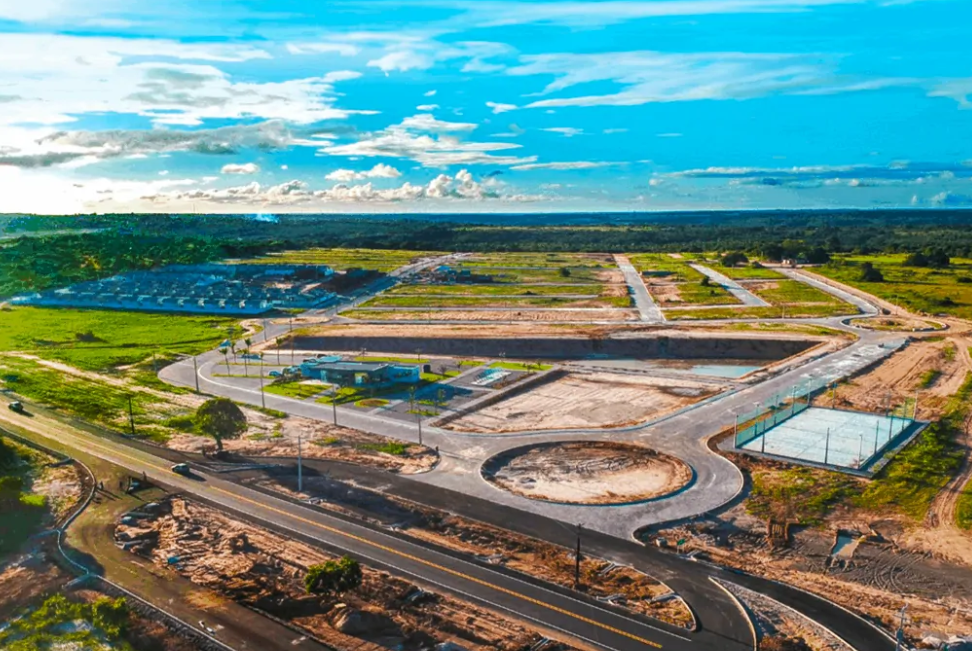ESG Keynote with Planet Smart City
Audrey Klein, Chair of ESG Committee Planet Smart City, and Alessandro Marchesini Chief Digital Strategy Officer Planet Smart City.
The ESG Keynote with Planet Smart City talk began with a current assessment of the global housing market, with an emphasis on affordable housing. Affordable housing, not to be confused with social housing, is housing for each city’s workforce that is critical to the city’s effective operation (nurses, teachers, bus drivers, etc.). Planet Smart City presented data showing that the urban population is expected to rise at a rate of 1.42% per year, and that around 1.6 billion people live in dangerous and overcrowded housing worldwide.

Planet Smart City’s development goals are aligned with the United Nations’ Sustainable Development Goals (SDGs), with a focus on quality education, gender equality, clean water and sanitation, affordable and clean energy, and industry, innovation, and infrastructure. This holistic approach ensures that their projects are more than just buildings, but also conducive environments for thriving communities.
Embracing Proptech (Property Technology) as a means of promoting sustainability is a crucial component of Planet Smart City’s approach. This addresses the problem of silos in traditional development projects, as well as the role cities play in contributing to global carbon emissions, which are estimated to be around 70%.
An emphasis is placed on the use of data, particularly environmental data, for sustainability reporting, and tech disruptions to improve operations. Examples include using automation to prevent water leaks, which not only mitigates environmental damage but also fosters a culture of resource consciousness among residents.
An emphasis is placed on the use of data, particularly environmental data, for sustainability reporting, and tech disruptions to improve operations. Using automation to avoid water leaks, for example, not only reduces environmental harm but also creates a culture of resource consciousness among residents.
Planet Smart City relies on digital and Proptech solutions to monitor and achieve ESG objectives. Their model is intended to be internationally scalable and easily replicable, addressing the universal needs of real estate businesses. This is critical given the real estate sector’s long history of lagging behind in technological innovation, despite its high asset value.
Panel: ESG in Real Estate, Steps to Decarbonisation
With Panelists,
- Audrey Klein: Chair of ESG Committee, Planet Smart City
- Emily Hamilton: Head of ESG, Savills Investment Management
- Bozena Jankowska: Global Head of ESG, Slate Asset Management
- Luke Graham: Head of Research, Pi Labs
The ESG Panel discussed the role of Environmental, Social, and Governance (ESG) factors in the real estate sector, as well as decarbonisation challenges and strategies. All panelists agreed that real estate has been a slow adopter of ESG due to its multifaceted and compartmentalised nature, which encompasses a diverse range of stakeholders such as constructors, designers, brokers, and so on.
The high cost of ESG activities, particularly decarbonisation, is one of the sector’s primary concerns. This creates a dilemma for investors, who must frequently choose between profitability and sustainability. Furthermore, it is difficult for real estate operators to measure the effects of ESG, emphasising the importance of data. Collaboration from analysts, property managers, and, most importantly, occupiers is essential when it comes to real estate data, but this endeavour typically encounters barriers that make it extremely difficult to collect.
The future of real estate goes hand in hand with ESG, since assets that fail to adapt risk becoming stranded. One of the causes for the slow pace of ESG implementation has been a lack of communication and education within the sector. Slow regulatory and legislative challenges have also slowed the industry’s development towards net-zero goals.
Panellists stated that, while regulatory and legislative progress is slow, the private sector is leading the way by making a climate commitment that aligns occupiers’ objectives with sustainability goals developed through the Better Buildings Partnership (BBP), with over 50 real estate companies participating totaling 400 billion AUM. The panel covered significant risks such as climate, people and nature, and biodiversity, emphasising the interdependence of these variables.
The discussion also pointed out that while the environmental aspect is the most prioritised in ESG due to its risk, the social and governance aspects are equally important.
Local sourcing, water, energy, and waste management, and biodiversity were cited as significant drivers for ESG adoption in real estate, however the latter might often be counterproductive. The panel also emphasised the difficulty in managing the environmental impact of building materials and processes, which pose significant challenges to the sector’s long-term sustainability goals.
About the LBS Real Estate Club
With over 2,600 active members, the LBS Real Estate Club is one of the largest student-led clubs at London Business School. The Club provides resources for students interested in all aspects of the real estate industry, and help them to develop the skills, knowledge, and networks necessary to build careers within the sector.
